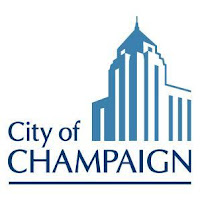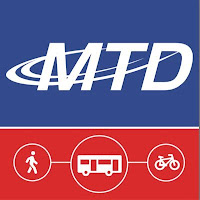Meetings are held at the City Council Chambers ( or you can Live Stream or watch the videos later here) unless otherwise indicated. How to address the council information. 102 N. Neil St., Champaign (map)
Champaign Human Relations Commission: July 2nd @11am (Special Meeting - Nominating Committee Meeting: agenda)
Meetings are normally held on the 1st Monday of each month at 5:30 pm in City Council Chambers, 102 N. Neil St., Champaign.
Champaign City Council:
- Regular Meetings: July 3rd and July 17th @ 7pm
- Regular meetings of the City Council are held on the first and third Tuesdays of each month at 7:00 pm in the Council Chambers of the City Building, 102 N Neil Street, Champaign. Regular meetings are used to conduct the legislative work of the City, including voting on Ordinances, Resolutions, holding public hearings, and approving expenditures. Major items of legislation are often discussed in Study Session meetings prior to being voted on during a Regular Meeting.
- Study Session Meetings: July 24th @ 7pm (the July 10th date appears to be cancelled due to unavailability issues - will update if I hear otherwise)
- Study Session meetings of the City Council are held on the second and fourth Tuesdays of each month at 7:00 pm in the Council Chambers of the City Building, 102 N Neil Street, Champaign. Study Session meetings are used to engage in an in-depth analysis and discussion of a particular topic. Informal polls are commonly taken by the Council to provide general staff direction on the subject being discussed, but no formal action is taken during Study Session meetings. Study Session topics needing formal approval will be place on a subsequent Regular Meeting agenda for a Council vote.
Urbana (calendar)
Meetings are held at the Urbana City Council Chambers (links to agendas and videos here) unless indicated otherwise. Meeting brochure with protocols. 400 S. Vine St., Urbana (map)
Urbana Human Relations Commission: July 11th @ 5:30pm
The Commission holds regular monthly meetings on the 2nd Wednesday of the month at 5:30 p.m. in the Urbana City Council Chambers. Special meetings may be held as deemed necessary.
Urbana City Council:
- Regular Meetings: July 9th (rescheduled) and July 16th @ 7pm
- The Council normally meets twice a month on the 1st and 3rd Mondays of the month at 7pm.
- Committee of the Whole Meetings: July 9th and July 23rd @ 7pm
- The Committee of the Whole meets on the 2nd and 4th Mondays of the month at 7pm.
The City Council establishes laws for citizen welfare, determines policies that govern providing municipal services and approves certain Mayoral appointments.
County Government: The Week Ahead posts



















